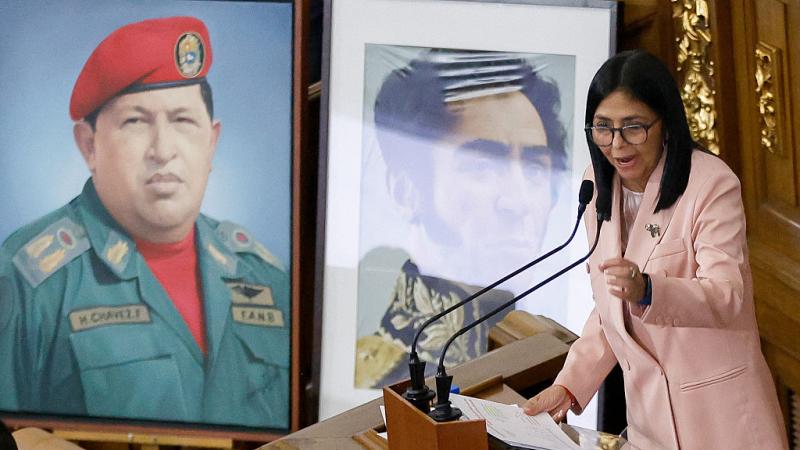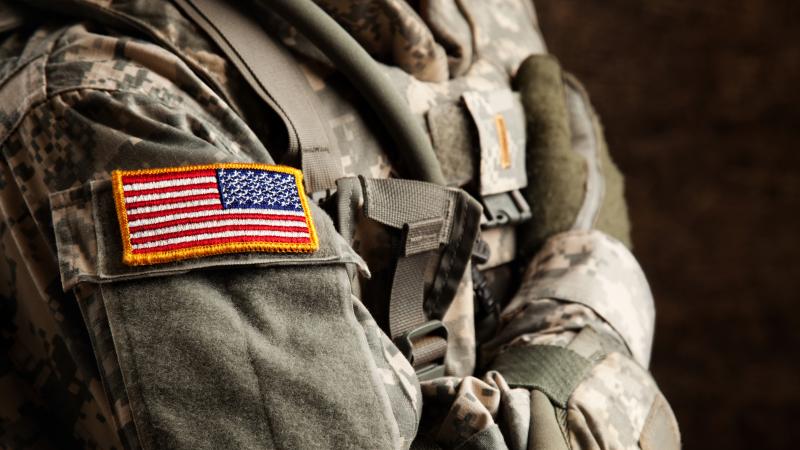Trump ramps up push for U.S. strikes in Mexico as drug cartels fight each other
Striking while the iron is hot: The cartels are at war with each other, and some say the time is ripe. Trump himself confirmed that he had made an offer of more direct help to the Mexican president, but said “she is so afraid of the cartels she can’t even think straight.”
President Donald Trump has escalated his public calls for military action against the Mexican drug cartels as they face intense infighting and struggle to adapt to his military buildup at the southern border. Though Mexican President Claudia Sheinbaum has resisted direct American military intervention, Trump has renewed the push as the situation appears ripe for some kind of decisive action.
American troops have not been deployed to Mexico for combat purposes since 1916, in pursuit of Mexican bandit/revolutionary Pancho Villa following his attack on Columbus, New Mexico. Led by Brigadier General John J. "Blackjack" Pershing, the 10,000-strong expeditionary force failed to capture Villa and withdrew in 1917.
Sheinbaum, over the weekend, said that Trump had offered to deploy American military personnel to Mexico to help her combat the cartels, but that she had refused him.
“How can we help you fight drug trafficking? I propose that the United States military come in and help you,” she quoted him as saying. “And you know what I said to him? ‘No, President Trump.’” She further said that Mexican “sovereignty is not for sale” and that she had told him “we can work together, but you in your territory and us in ours.”
Trump himself confirmed that he had made the offer on Monday, but said “she is so afraid of the cartels she can’t even think straight.”
Cartels in civil war
Senior administration officials have also called on Sheinbaum to reconsider, with U.S. Customs and Border Protection senior adviser Ron Vitiello echoing the sentiment, telling NewsNation that Sheinbaum has a “once in a lifetime opportunity” to eliminate the cartels. Recent admissions from cartel figures and ongoing infighting, moreover, appear to suggest Vitiello may be right.
Mexican politics are largely dominated by the myriad drug cartels, which have effectively carved out parts of the country into semi-autonomous warlord states. The cartels often even operate as an alternative government. Mexico’s official government operates to some extent within these regions, but has limited ability to effectively govern in certain areas.
The Sinaloa Cartel holds sway over much of the American border, though it competes with the formerly dominant Juárez Cartel, which is based out of Ciudad Juárez. The Jalisco-based Jalisco New Generation Cartel, moreover, ranks among the most violent of the groups and operates out of central Mexico.
The Sinaloa Cartel, for its part, has been mired in infighting since the 2024 arrests of Ismael “El Mayo” Zambada and Joaquín Guzmán López, the son of Joaquín “El Chapo” Guzmán. The Mayos and Chapos factions have waged war for control in the aftermath, with the conflict bringing chaos to the city of Culiacán. In the fallout, according to the Associated Press, some elementary school officials call parents after a violent episode and cancel classes for the day.
CNN interview and Mexican public sentiment
The city has reportedly seen at least 1,200 dead in the past year with hundreds more listed as missing persons.
Perhaps betraying the now-vulnerable state of the cartels was a much-criticized CNN interview with a purported unnamed member of the Sinaloa Cartel. CNN journalists traveled to Culiacán last week and documented the violence plaguing the city and met with a masked member of the group who manufactured fentanyl.
“Right now, all areas are dangerous,” he said, describing the city. He further highlighted that crackdowns by the Mexican government had achieved some results following pressure from Trump.
When asked about the effect of the Trump-backed crackdown, “They’re doing a good job,” he replied, continuing that “There are more of them [enforcement actions] now, so we have to find a way to keep doing this, to keep working. Of course, on a smaller scale, not the same as before. But it continues.”
Some locals believe it would have been worse had it not been for the Trump administration pushing Mexico City to act.
“That pressure [from the Trump administration] has translated into tangible results here, into better coordination that translates into all these issues of inhibiting criminal activity, especially its firepower,” Culiacán local Miguel Calderón told the outlet. “If it weren’t for federal forces and all this military support from the national government, the problem would be two or three times worse.”
Amusingly, when asked his opinion of President Trump, the unnamed cartel member uttered a one-word answer: “Respect.” He then explained that he believed Trump is "working to take care of his own people."
“But the problem is the consumers are in the United States,” he said, ultimately. “If there weren’t any consumers, we would stop.”
Jaliscos
The situation within Sinaloa territory is far from isolated, however, as other cartels have worked to expand amid the infighting, including the Jaliscos, whom the Treasury Department sanctioned last week over fuel theft and drug trafficking.
“Fuel theft and crude oil smuggling are cash cows for the [Jaliscos'] narco-terrorist enterprise, providing a lucrative revenue stream for the group and enabling it to wreak havoc in Mexico and the United States,” Treasury Secretary Scott Bessent said at the time.
Fuel theft has become an increasingly lucrative operation for the drug cartels, with the organizations using myriad means to steal oil from Petróleos Mexicano and sell it to oil importers who return the profits back to the cartels.
The Jaliscos operate out of central Mexico and have long feuded with the Sinaloa, previously abducting the sons of El Chapo following his arrest.
Crenshaw: "The Time is now"
In 2023, Sen. Lindsey Graham, R-S.C., and Sen. John Kennedy, R-La., floated legislation to brand the cartels as terrorist organizations and to authorize military force against them. Republicans were mulling military action against the drug cartels and suggested an Authorization for Use of Military Force (AUMF) under the Biden administration over the fentanyl crisis.
"We're going to destroy their business model and their lifestyle because our national security and the security of the United States as a whole depends on us taking decisive action,” Graham said. "It's time now to get serious and use all of the tools in the toolbox. Not just in the prosecution lane, not just in the law enforcement lane, but in the military lane as well.”
The Biden administration was largely uninterested in pursuing aggressive action on the cartels or the border itself. As a result, Trump built a winning campaign on the issue, in part, by insisting on designating the cartels as terrorist groups. Trump did so in February.
His push to deal with the cartels directly in Mexico, moreover, builds on more recent input from members of Congress. In March, Rep. Dan Crenshaw, R-Texas, said “[t]he time is now to take the fight to the cartels” in light of Trump’s prioritization of the issue.
The Facts Inside Our Reporter's Notebook
Links
- Pancho Villa
- Brigadier General John J. "Blackjack" Pershing
- she quoted him
- telling NewsNation
- among the most violent of the groups
- bringing chaos
- much-lampooned
- met with a masked member
- Treasury Secretary Scott Bessent said
- Miguel Calderón told
- including the Jaliscos
- Authorization for Use of Military Force (AUMF)
- Graham said
- Trump did so
- Dan Crenshaw














